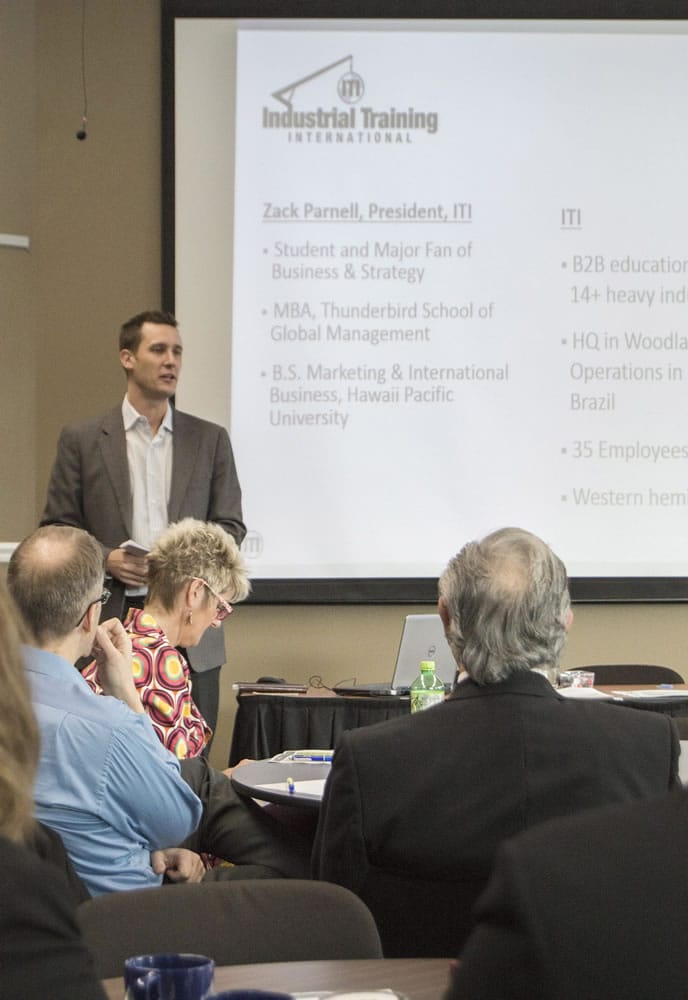When given the choice between a clear blue ocean teeming with fish and a bloodied sea swimming with sharks, the blue ocean would seem to be the obvious choice. Yet the shark-infested waters seem so comfortable.
About 30 local business owners and employees learned how to find their blue ocean and avoid the temptations of the more traditional, crowded red sea Wednesday morning during a presentation sponsored by Washington State University Vancouver.
Michael Curry, a business professor at WSUV’s Carson Business School, introduced the “Blue Ocean Strategy,” a formula for businesses to differentiate their offerings while keeping costs low, which allows them to “own” a customer base away from crowded markets.
“Think of the dining market in downtown Vancouver,” Curry said. The restaurants “all play by the same set of rules. They’re trying to attract the same customer base with menus and a few dollars’ difference in price. Essentially, it’s a very similar strategy.”
That would be the red ocean, filled with sharks swimming after the same school of fish.
To compare, the blue ocean is arguably free of competition. Businesses there can thrive by cutting expensive offerings to lower costs, for example, while building strength in areas that their competitors are just okay at.
The example given by the authors of the Blue Ocean Strategy, W. Chan Kim and Renee Mauborgne, is Southwest Airlines. The business emphasizes service, speed and frequent departures while forsaking food, seating choice and price.
Even then, it’s not all blue ocean, or blue sky. In the Southwest Airlines example, Curry said, the lower-cost options puts air travel in competition with the automobile for budget travelers.
Zack Parnell, president of the Woodland-based Industrial Training International, gave a local example of how he employed the strategy to help grow his family’s firm.
The 30-year-old “corporate college,” originally opened in Vancouver, now has training sites in Houston, Los Angeles and Edmonton, Alberta. It also operates in Brazil.
Getting there meant setting a weekly strategy meeting and creating and checking on a road map to become the type of training company that, say, Boeing would call up for a consultation, Parnell said.
“This is a culture shift type of thing,” he said, pointing out that even small companies can work on the strategy or even hold meetings with just one or two people. With Parnell’s 35 employees, it meant picking the best team.
“You have to project-manage like it’s a project for your best customer,” he said.
WSUV hosts a talk every month for its Business Growth Mentor & Analysis Program, a business-focused part of the student-led consultancy program. The school will soon begin a 10-session technology collective aimed at growing local software and technology firms.
Find out more at business.vancouver.wsu.edu/bgmap.




